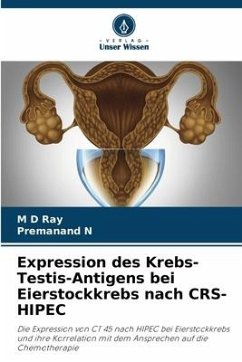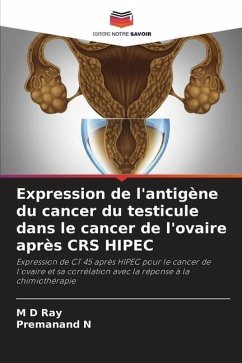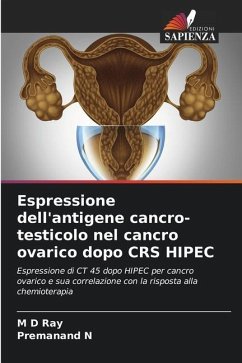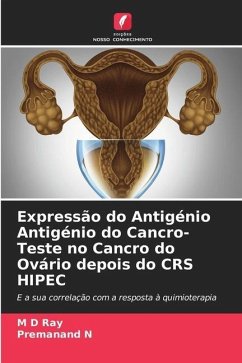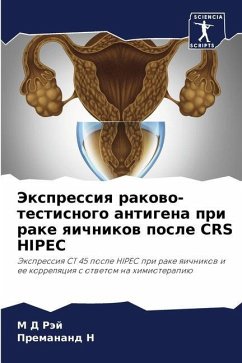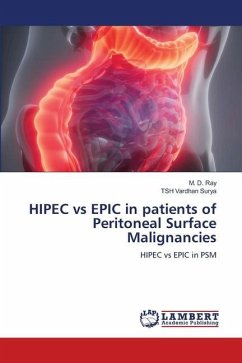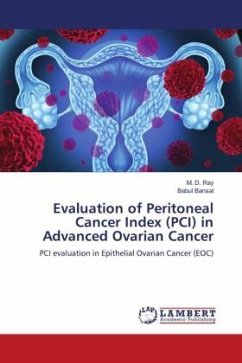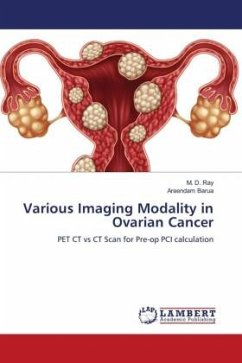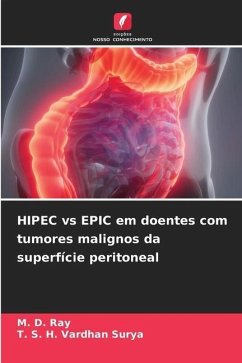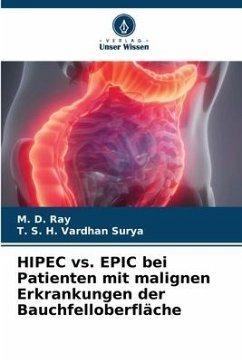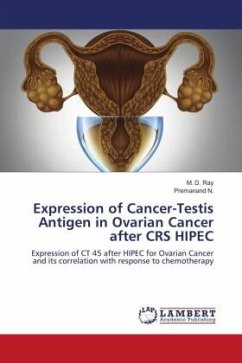
Expression of Cancer-Testis Antigen in Ovarian Cancer after CRS HIPEC
Expression of CT 45 after HIPEC for Ovarian Cancer and its correlation with response to chemotherapy
Versandkostenfrei!
Versandfertig in 6-10 Tagen
40,99 €
inkl. MwSt.

PAYBACK Punkte
20 °P sammeln!
The most common type of ovarian cancer is epithelial ovarian cancer (EOC) worldwide. The current standard treatment consists of complete Cytoreductive surgery with platinum-based chemotherapy. HIPEC with Cisplatin is delivered after CRS at 410-430 C and it has become the advanced treatment modality with survival benefit. The tumor and the surrounding microenvironment (TME) are closely related and interact constantly. Tumors can influence the microenvironment by releasing extracellular signals, promoting tumor angiogenesis, and inducing peripheral immune tolerance, while the immune cells in the...
The most common type of ovarian cancer is epithelial ovarian cancer (EOC) worldwide. The current standard treatment consists of complete Cytoreductive surgery with platinum-based chemotherapy. HIPEC with Cisplatin is delivered after CRS at 410-430 C and it has become the advanced treatment modality with survival benefit. The tumor and the surrounding microenvironment (TME) are closely related and interact constantly. Tumors can influence the microenvironment by releasing extracellular signals, promoting tumor angiogenesis, and inducing peripheral immune tolerance, while the immune cells in the microenvironment can affect the growth and evolution of cancerous cells. Immunotherapy and cancer-directed vaccines represent promising future strategies for managing solid malignancies. Ovarian cancer is immunogenic. Most of the studies on the OC micro-environment are from the Western population. Cancer-testis antigen (CTA) is a potential target candidate for immunotherapy due to its expression in immune-privileged sites. In addition, CT45, a notable CTA, has been proposed to be expressed in advanced-stage epithelial ovarian cancer and influences chemo-responsiveness of the tumor.



